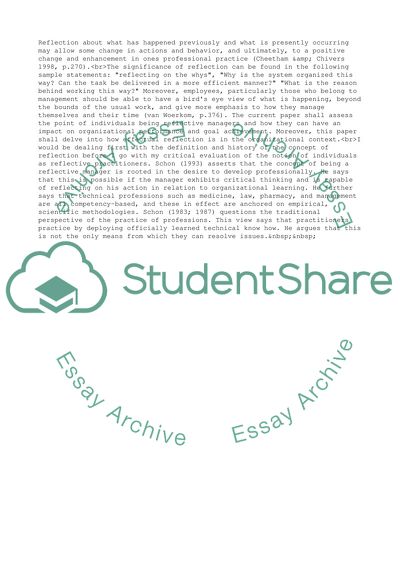Cite this document
(The Reflective Manager Research Paper Example | Topics and Well Written Essays - 3250 words, n.d.)
The Reflective Manager Research Paper Example | Topics and Well Written Essays - 3250 words. Retrieved from https://studentshare.org/management/1723730-the-reflective-manager
The Reflective Manager Research Paper Example | Topics and Well Written Essays - 3250 words. Retrieved from https://studentshare.org/management/1723730-the-reflective-manager
(The Reflective Manager Research Paper Example | Topics and Well Written Essays - 3250 Words)
The Reflective Manager Research Paper Example | Topics and Well Written Essays - 3250 Words. https://studentshare.org/management/1723730-the-reflective-manager.
The Reflective Manager Research Paper Example | Topics and Well Written Essays - 3250 Words. https://studentshare.org/management/1723730-the-reflective-manager.
“The Reflective Manager Research Paper Example | Topics and Well Written Essays - 3250 Words”, n.d. https://studentshare.org/management/1723730-the-reflective-manager.


